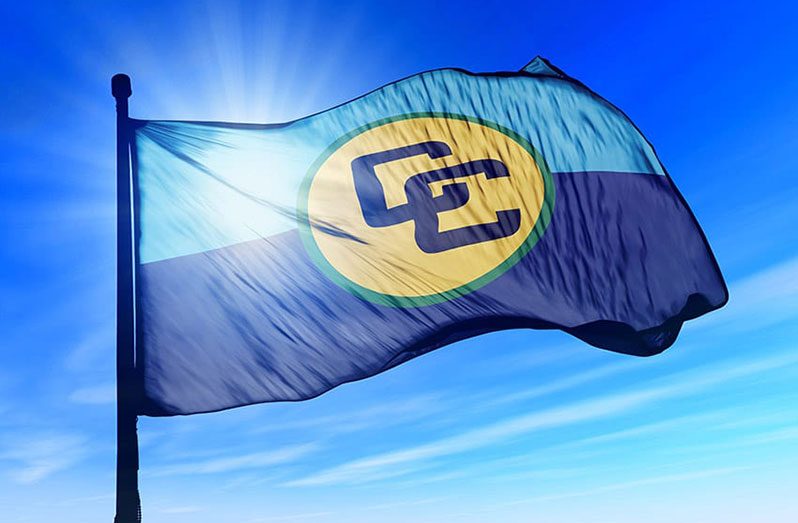–reaffirms support for Guyana’s sovereignty, territorial integrity
THE Caribbean Community (CARICOM) has expressed deep concern over Venezuela’s persistent “aggressive” stance towards Guyana amid the ongoing border controversy over the Essequibo Region.
This issue was a central topic at the 27th meeting of the Council for Foreign and Community Relations (COFCOR), held in Roseau, Dominica, from May 23-24, 2024.
Despite international rulings and diplomatic efforts advocating for a peaceful resolution, Venezuela has continued to escalate tensions.
“The Foreign Ministers received an update on recent developments on the controversy between Guyana and Venezuela. They noted that despite the December 1, 2023, Order of Provisional Measures made by the International Court of Justice and the Joint Declaration of Argyle for Dialogue and Peace between Guyana and Venezuela, agreed to by the parties on December 14, 2023 – with substantial regional support Venezuela continued its aggressive posture towards Guyana,” the communique said.
The bloc noted that Venezuela’s recent actions have undermined these efforts.
At the COFCOR meeting, foreign ministers noted Guyana’s serious concerns regarding the continued military build-up by Venezuela along their shared border.
They highlighted the importance of regional stability and condemned any actions that could further inflame the situation.
In a significant development, Venezuela had submitted its Counter-Memorial to the ICJ on April 8, 2024, indicating its participation in the judicial process.
Despite this, CARICOM ministers reiterated their unwavering support for the judicial resolution of the controversy and underscored their commitment to upholding the sovereignty and territorial integrity of Guyana.
Recently, former Colombian President Ivan Duque condemned Venezuelan President Nicolas Maduro’s attempts to leverage the border controversy with Guyana to distract from internal challenges and to rally support ahead of Venezuela’s upcoming elections.
However, Duque asserted that the international community would respond “strongly” to any attempt by Maduro to use force against Guyana.
Duque elaborated: “According to the Treaty of Reciprocal Assistance… there’s going to be a very strong response if he tries to use force against Guyana.”
He also dismissed the notion of Maduro having the military capacity to invade and sustain an occupation in Guyana, labelling it a “very stupid card” that would elicit an immediate and robust international response.
“He better not play with that because he knows that if he tries to play the card, he’s going to receive a very strong response,” Duque said.
In addition to geopolitical concerns, he highlighted the environmental implications of Maduro’s actions.
Duque praised Guyana for its efforts in conservation and protection of the Essequibo region, warning that any attempt by Maduro to assert control would result in an “environmental disaster.”
Maduro’s tactics, intended to bolster his political position, have faced criticism for their questionable nature and potential ramifications on regional stability.
This action by President Maduro has triggered fierce condemnation not only from Guyana, but also international and regional bodies.
Describing the action as “a flagrant violation of the most fundamental principles of international law,” Guyana reaffirmed its commitment to upholding the principles enshrined in the United Nations Charter, the Charter of the Organisation of American States, and customary international law.
The government highlighted that this move by Venezuela contradicts the spirit of the Joint Declaration of Argyle for Dialogue and Peace, signed in December 2023.
“It is unfortunate that the commitment made at Argyle to the pursuance of good neighbourliness, peaceful coexistence, and the unity of Latin America and the Caribbean is now again seriously threatened by President Maduro’s words and action…,” the statement from the government had read.
When Venezuela created a new state called, “Guayana Esequiba,” it added another layer of complexity to the longstanding territorial controversy. Venezuela, last year, had intensified claims to two-thirds of Guyana’s Essequibo Region.
Guyana’s government reiterated its steadfast commitment to the principles of the United Nations Charter, the Rule of Law, and the peaceful settlement of controversies.
However, the country issued a firm warning that it “will not countenance the annexation, seizure, or occupation of any part of its sovereign territory.”
Guyana remains steadfast in its position, asserting that its borders are non-negotiable, and reaffirming its sovereignty over the territory.
Highlighting the gravity of the situation, President, Dr Irfaan Ali recently acknowledged Venezuela’s aggressive posture, stating: “We are dealing with a neighbour that is aggressive; that has made certain threats.”
He outlined Guyana’s proactive measures, including investments in military capabilities and infrastructure, to deter any potential aggression.
However, President Ali pointed out that Guyana’s first line of defence is diplomacy.
“We are investing in our military; we are investing in the technology of our military. We are investing in infrastructure,” he said.
He underscored the significance of an international coalition in deterring destabilising actions from Venezuela, stating: “We are working on the basis of an international coalition that would not allow this region to be destabilised by any action by Venezuela to overrun our territorial integrity or our borders.”
The genesis of the border controversy goes back to the 1899 Arbitral Award, a landmark decision that delineated the boundary between Guyana and Venezuela.
Despite the historic arbitration, tensions have persisted, with Venezuela repeatedly challenging the validity of the award.
In 2018, Guyana took a decisive step by approaching the ICJ seeking affirmation of the award’s legitimacy.
Venezuela initially claimed that the ICJ lacked jurisdiction, a contention flatly rejected by the World Court in a crucial ruling in December 2020. The door was thus opened for the ICJ to delve into the merits of the substantive case.





.jpg)








